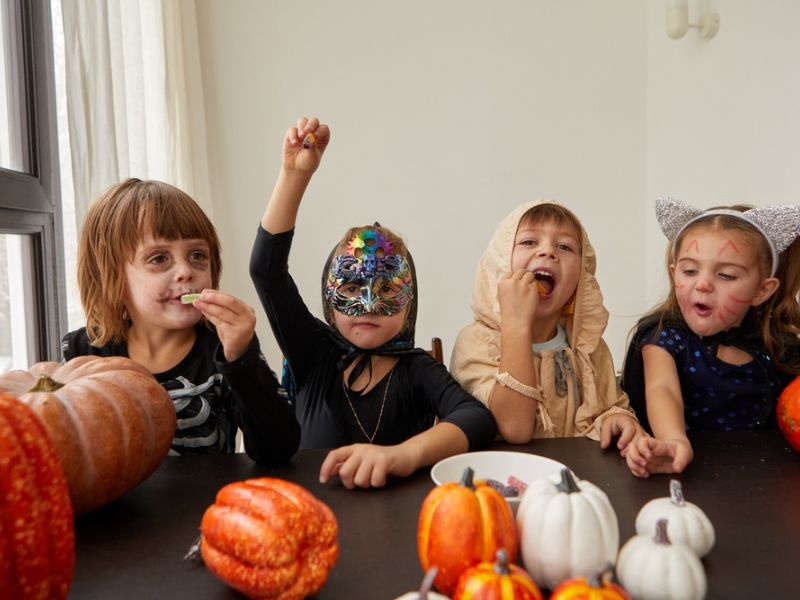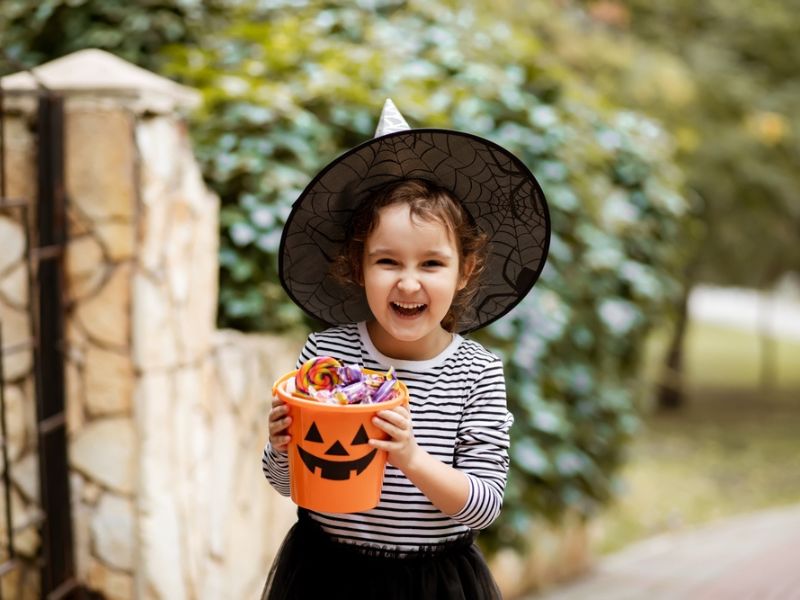In the last few weeks, pumpkins and skeletons adorned lawns, costumes were ordered and assembled, and kids planned trick-or-treating routes. The Halloween season is over, with candy lining the shelves of grocery stores and candy bars lining receptionists’ desks.
Comments about “too much sugar,” “being bad,” and “cheating” peak around the 31st. But candies last longer. Who hasn’t bought their least favorite Halloween candy to give Trick-or-Treaters so they won’t be tempted to eat it all themselves? Kids hear all of this, too.

Image Credit: Shutterstock/Demkat
Our kids won’t suffer long-term harm from one sweet day (provided they brush their teeth and don’t have certain medical conditions). Adults’ opinions on candy and food can affect how children understand food and their body.
As we approach and follow Halloween, we can choose our words mindfully and allow our kids to experience new foods without anxiety, perhaps in a way we didn’t get to at their age. Here are some ways to have a fun and healthy relationship with Halloween candy:
It’s Okay For Kids To Enjoy Their Candy
Candy will not harm our kids long-term, but hearing adults badmouth a holiday they look forward to all year affects how they think about food and their bodies. Pick your words carefully and reassure your kids.

Image Credit: Shutterstock/Zulfiska
How To Talk About Halloween Candy?
- Use value-neutral terms
- Candy isn’t “bad” or “evil,” according to Alexandra Altman, a counselor who specializes in food.
- Children should be allowed to eat as much candy as they want while being encouraged to monitor their bodies.
- Another way to connect with your kids is to talk about the positives.
But What If They Eat It All?
- Candy will generally lose its appeal after a few days if kids think about it neutrally.
- Let kids feel overly full.
- It helps them understand their bodies.
- Parents influence kids’ body image and food attitudes.